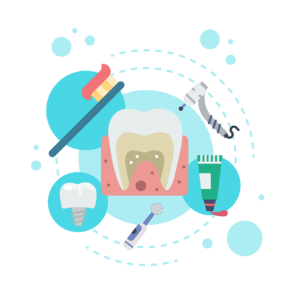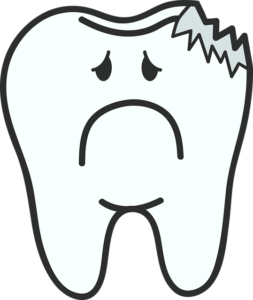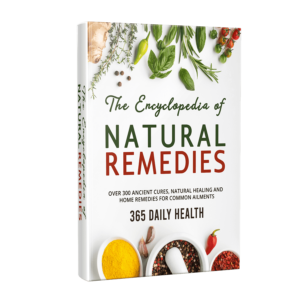Introduction
Home remedies can offer temporary relief from toothache. A saltwater rinse can help clear debris and reduce inflammation. Cold compresses may alleviate pain and swelling. Over-the-counter pain relievers can control discomfort, while topical gels offer numbing relief. Remember, these are interim solutions until professional dental care is sought.
Toothache, often a result of dental conditions such as cavities, gum infections, or damaged fillings, can significantly impact an individual’s quality of life. It may manifest as a persistent pain that worsens with eating or drinking, posing potential impediments to essential daily activities. Besides, severe toothache also signals the likelihood of underlying serious dental issues that might require immediate attention. It is thus imperative to seek medical help without delay in severe cases to prevent further complications. Notwithstanding, home remedies can serve as interim relief providers until professional medical care is availed. It’s worth noting that these remedies don’t replace the need for a professional dental check-up, but they can alleviate discomfort and pain to a certain extent.
Common Causes of Toothache
- Cavity or Tooth Decay: This is one of the most common causes of toothache. Cavities, also known as dental caries, occur when bacteria, food, and acid coat your teeth and form a plaque. The acid on your teeth starts to eat away at the outermost layer, called the enamel, resulting in tiny holes in the tooth.
- Infected Gums: Gum disease, also known as periodontal disease, is an infection of the tissues and bones that surround and support the teeth. It’s usually caused by poor brushing and flossing habits that allow plaque—a sticky film of bacteria—to build up on the teeth and harden, leading to toothache.
- Damaged Fillings: Dental fillings that have been damaged or fallen out can be a source of toothache. The filling serves to seal off areas of decay. If the filling becomes damaged, bacteria can infiltrate the sensitive part of the tooth, leading to pain.
- Tooth Fractures: A cracked or broken tooth can cause a very painful toothache, especially if the inner pulp of the tooth is exposed. This is where the tooth’s blood vessels, nerve, and connective tissues are, and if they become inflamed or infected from exposure, it can cause severe pain.
Home Remedies for Toothache
Saltwater Rinse: A simple yet effective remedy for a toothache is a saltwater rinse. Dissolve half a teaspoon of salt into a glass of warm water and use it as a mouthwash. Not only does it help clean away irritants that could be causing the pain, but it also reduces inflammation and heals any oral wounds.
Cold Compress: Applying a cold compress to the affected area can help numb the pain and reduce swelling. The cold constricts the blood vessels, slowing the flow of blood to the affected area and thus minimizing the pain.
Over-the-Counter Pain Relievers: Over-the-counter pain relievers like ibuprofen can provide temporary relief from toothache. Always ensure to follow the recommended dosage instructions on the package.
Topical Numbing Gels: Topical numbing gels containing benzocaine can be applied directly to the affected tooth and gum to relieve pain. These can be found in most pharmacies.
Clove Oil: Clove oil is a natural remedy that has been used for centuries to alleviate toothaches. The eugenol in clove oil has both antiseptic and analgesic properties. A small amount of clove oil applied to a cotton ball and then dabbed on the affected area can provide relief.
Remember, these remedies provide temporary relief, and it is crucial to visit a dentist for a proper diagnosis and treatment to prevent further complications.
Preventive Measures for Toothache

Regular Tooth Brushing and Flossing: One of the most effective ways to prevent toothaches is maintaining good oral hygiene. Regular brushing at least twice a day and flossing once a day can remove plaque build-up, which is a prime cause of tooth decay and gum disease. Using fluoride toothpaste can help strengthen tooth enamel and prevent cavities.
Regular Dental Check-ups: Regular check-ups with your dentist, preferably every six months, are vital in the early detection and treatment of oral health problems. Dentists can spot signs of cavities, gum diseases or other dental issues before they develop into a severe problem, thus preventing the occurrence of toothaches.
Balanced Diet: A balanced diet plays a critical role in preventing toothaches. Consuming a diet rich in vitamins and minerals, especially calcium and vitamin D, can help strengthen your teeth. Limiting sugary foods and drinks can protect your teeth from decay, a common cause of toothache. Chewing sugar-free gum after meals can also help to neutralize and rinse away acids produced by the bacteria in your mouth.
Remember, prevention is better than cure. By implementing these preventive measures, you can protect your oral health and avoid painful toothaches. This article belongs to pineyriverhomestaed. Published 9-19-23
Conclusion
The best thing you can do for your teeth is get them cleaned and X-rayed every 6 months or at least once a year. It’s much cheaper to pay for that and discover a cavity that can just be filled instead of waiting until you need a root canal, extraction, or crown.
Below are prices I found from 2017
Bridge 1635
Crown or Cap 897
cleaning 66
Extraction 284
Filling or Repair 191
Root Canals (Endodontics) 911
X-rays another 100 or so
Dental care is very inaccessible to those who often need it the most. Often state-sponsored Medicaid plans won’t pay for even basic dental care. All the dental insurances I have looked at are not worth the money you pay for them. If you saved that money you’d have just about the same care as your premiums provide. At least that’s been my experience with dental plans. Of course, if you don’t think you will save the money maybe it’s worth it.
For more home remedies click here.


